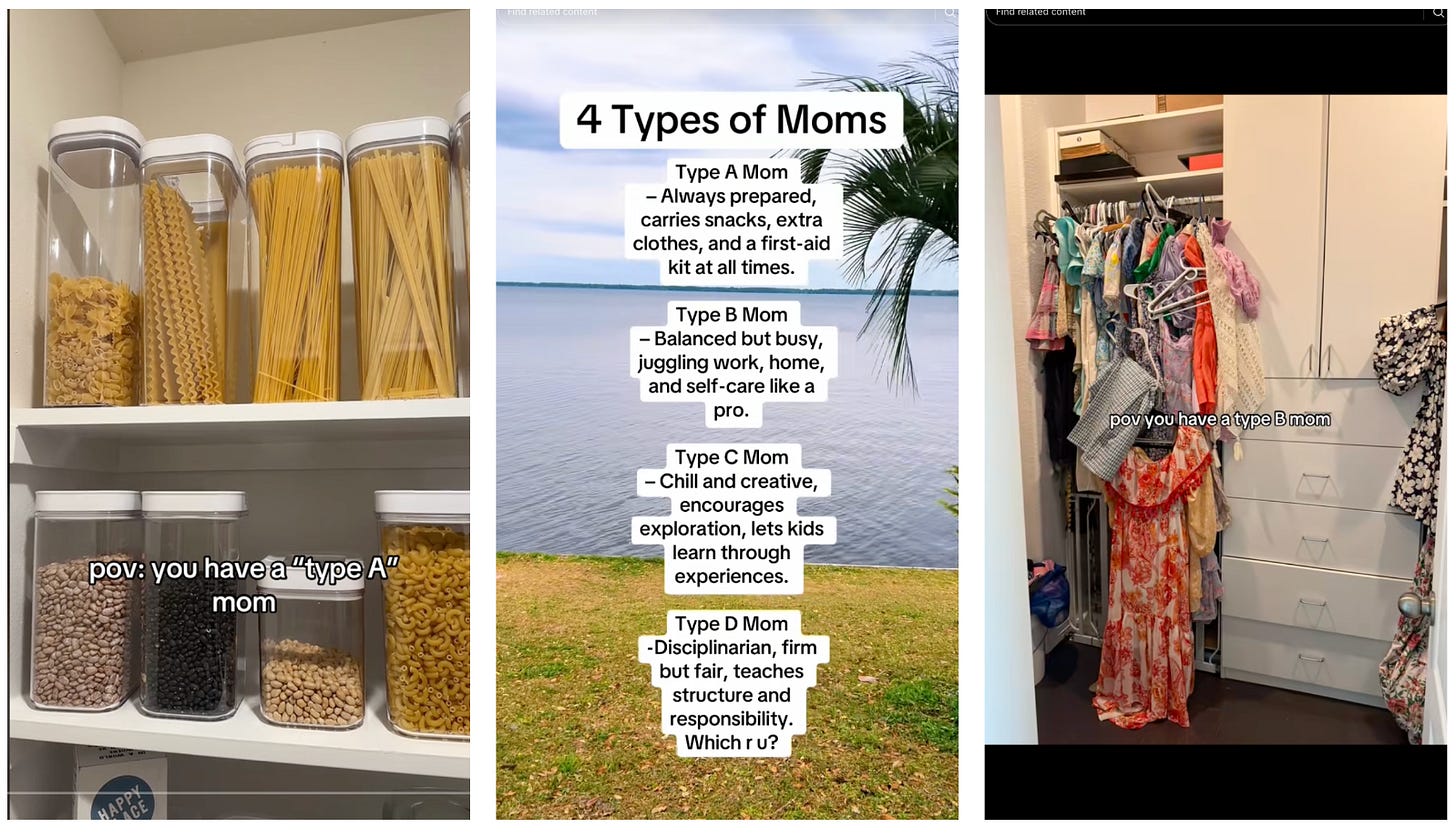Were You Raised by a Type A or Type B Mom?
How a wave of TikTok content about our parents helped us understand ourselves.
What’s going on?
TikTok is awash with content about the different taxonomies of momhood:
Type A moms have organized pasta jars
Type B moms have messy drawers
Type C moms defy categorization
And of course the comments are alight as even more people weighed in – not just to share which type of mom they had, but evaluating the pros and cons of different motherhood models. Type As offer structure, security, and color-coded stationery, but often at the cost of anxiety or emotional distance. Type B moms seem to excel at warmth and flexibility – but that can slide into inconsistency.
(Confession: I’m a pure Type A mom until I crash and burn.)
What’s driving it?
Of course there are the superficial drivers – TikTok loves a binary, so Type A vs. Type B is exactly the kind of scroll-stopping content that drives comments. And everyone was raised by someone, so it really is the ultimate in relatable content.
But there’s a bigger reckoning beyond the memes. Especially TikTok amplified awareness of complex family dynamics (like parentification and emotionally immature parents) – while also equipping people with the vocabulary to set boundaries (think no contact and gray rocking) . And this is all alongside a wider shift in family relationships which includes an estrangement “epidemic.”
Millennials and Gen Z are more fluent in therapy than any other generation. As they become parents, they’re not just asking how to raise kids – they’re looking at their own past to see what helped and what hurt.
What does it mean?
These memes aren’t just jokes – they’re tools for self-understanding. Knowing who raised you has become part of knowing yourself. Why am I the way I am? What parts of me were shaped by structure, chaos, control, or absence?
One viral example cuts to the heart of it: a creator with Fetal Alcohol Syndrome jokes, “That’s the price you pay for having an awesome mom.” Top comment? “God forbid a pregnant woman catches a vibe.”
It’s dark but tender – internet humor expressing complicated love in unserious language. And that tenderness runs through much of the conversation. Whatever the mom type, many are reflecting not to assign blame, but to understand: She really did do her best. And it was her first time living life, too.
Final takeaway
The parents-on-TikTok discourse started sharp, shining a light on every micro-trauma with a vocabulary and frameworks for understanding what we lived through. Now, something softer is emerging: understanding. Parenting isn’t just about the past. It’s about the stories we inherit – and the ones we choose to rewrite with more awareness and empathy.




